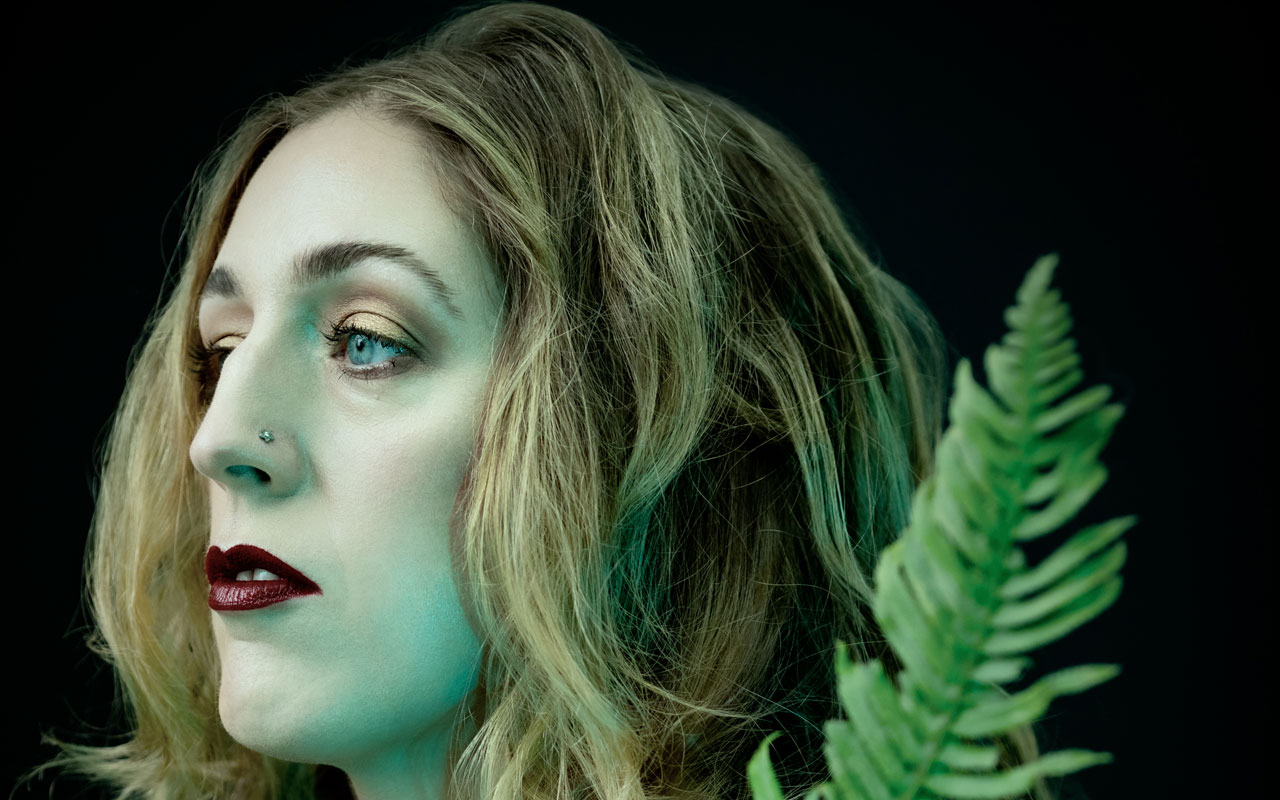
Kaley Lane Eaton photo by Michelle Smith-Lewis
Friday, March 15, 8pm
Chapel Performance Space
4649 Sunnyside Ave N
$5-20
Pacific Northwest artists have long been inspired by the region’s sylvan beauty, and Kaley Lane Eaton is no exception. Having spent her childhood surrounded by the woods, Eaton aspires to integrate the spirit of the forest into her avant-garde folk compositions. On March 15, she’ll evoke that spirit through a live performance at the Chapel, where a bevy of guest musicians will help bring her music to life.
Before Eaton decided to explore folk music, she spent her youth training to be a classical musician. Born in Mukilteo to non-musician parents, Eaton started playing piano as a 3-year-old and wrote her first songs on guitar as a teenager. Her training led her to Whitman College on classical piano and voice scholarships, earning a master’s degree in the latter at the Longy School of Music in Cambridge. Yet throughout her education, she remained fixated on folk music—specifically Renaissance-era folk. “I got really into early music,” she says of the time, “Monteverdi and Dowland and stuff from the Renaissance. I started playing the lute. That was a weird time in my life.”
Her interest in early folk comes through on Lookout, her second solo album and the inceptive release for Strange Moon Records, the new label out of Kin of the Moon. Where Eaton’s 2020 debut Cedar married verdant ambiance with electronic textures, Lookout takes place entirely within the acoustic realm. Each of its seven songs features Eaton’s glass-like voice at its nexus while strings, woodwinds, and the occasional baglama orbit around it. True to the spirit of experimental music, the parts synchronize and clash at intriguing angles. On “To Move The Earth,” for instance, the humble pluck of Eaton’s banjo wrestles with Lily Press’ seraphic harp. Elsewhere, Eaton’s piano chords and Chris Icasiano’s galloping drums rush past fauna portrayed by heady swirls of violin and viola.
According to Eaton, the shift from electronics to acoustic instruments was intentionally meant to provide distance from her use of electronics, which she studied at the University of Washington. Though she spent years honing her skills with live performance software, her perspective on electronics soured amid our transition online, where tools like social media and AI actively threaten the human connection. “We need humanity more,” she says. “We don’t need to celebrate this thing anymore.”
When Eaton moved back to Seattle in 2018, she joined the staff at Cornish College of the Arts teaching music technology. There, she discovered a community of talented, open-minded peers willing to explore her outré interests. Consequently, many of the album’s contributors – including bassist Kelsey Mines, violists Kayce Guthmiller and Heather Bentley, and flutist Leanna Keith – are Cornish staff. “Those are my people,” Eaton offers. “Who else am I going to play music with?”
At the Chapel, expect just about every artist from the recording alongside Eaton including her Cornish colleagues, James Falzone, Tom Baker, Alina To, Aleida Gehrels, Maria Scherer Wilson, Ray Larsen, Neil Welch, Icasiano, Moe Weisner, Sam Boshnack, and Rian Souleles from Seattle, along with harpist Press and cellist Simon Linn-Gerstein from LA. Through gorgeous melodies and remarkable improvisation, they intend for the night to be a tribute to musical kinship and an affirmation of the humanity fostered in its performance.